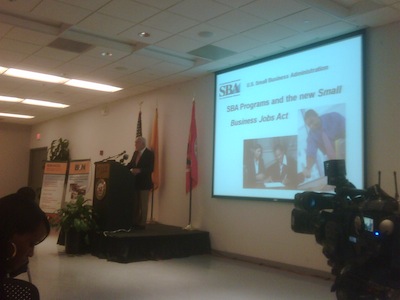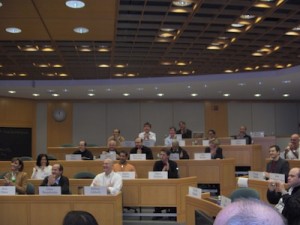A report from the World Bank’s Development Research Group finds that new business creation fell dramatically in the wealthiest countries as the global banking crisis of 2008 – 09 deepened. But business creation in low-income countries remained constant. The inhibition in the wealthier countries appears to be the result of a widespread lack of business confidence and frozen credit markets. For lower-income countries, where the credit markets are generally not accessible to entrepreneurs to begin with, the banking crisis did not have the same impact. Leora F. Klapper and Inessa Love, the World Bank senior economists who authored the report, emphasize that the recent crisis notwithstanding, the financial markets offer more benefits than risks to new business creation. They write
Entrepreneurship is essential for the continued dynamism of the modern market economy and a robust entry rate of new businesses can foster competition and economic growth…Entrepreneurial activity can also contribute to employment generation. For instance, in the United States and Canada, young firms have been shown to be an important source of net job creation, relative to incumbent firms.
The World Bank’s “Doing Business” series, unrelated to this report on new business creation, tracks metrics such as ease of incorporating a new business, access to finance, tax policy and other variables that influence entrepreneurial activity. True to the adage that “what is measured is managed”, countries take active steps to improve their rankings in this report, with reform measures to streamline the process of business start-ups. As small business owners, we need to get our elected officials in Washington to read this report and act upon its recommendations.







